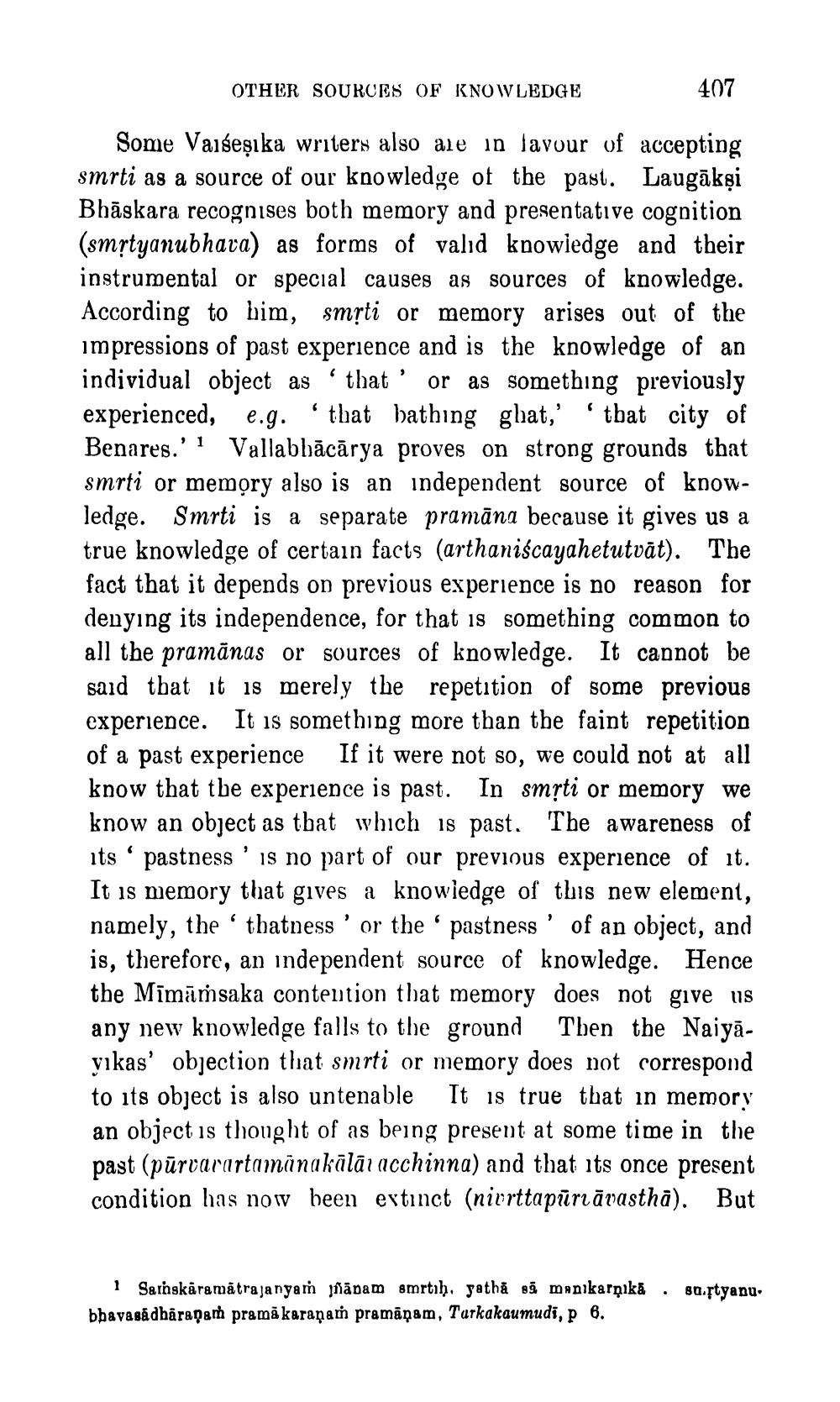________________
OTHER SOURCES OF KNOWLEDGE
407
Some Vaiseşıka writers also are in favour of accepting smrti as a source of our knowledge of the past. Laugākşi Bhāskara recognises both memory and presentative cognition (smrtyanubhava) as forms of valid knowledge and their instrumental or special causes as sources of knowledge. According to him, smộti or memory arises out of the impressions of past experience and is the knowledge of an individual object as 'that' or as something previously experienced, e.g. 'that bathing ghat,'' tbat city of Benares.'! Vallabhācārya proves on strong grounds that smrti or memory also is an independent source of knowledge. Smrti is a separate pramāna because it gives us a true knowledge of certain facts (arthaniscayahetutvāt). The fact that it depends on previous experience is no reason for denying its independence, for that is something common to all the pramānas or sources of knowledge. It cannot be said that it is merely the repetition of some previous experience. It is something more than the faint repetition of a past experience If it were not so, we could not at all know that the experience is past. In smộti or memory we know an object as tbat which is past. The awareness of its' pastness' is no part of our previous experience of it. It is memory that gives a knowledge of this new element, namely, the 'thatness' or the pastness' of an object, and is, therefore, an independent source of knowledge. Hence the Mimāmsaka contention that memory does not give us any new knowledge falls to the ground Then the Naiyāyıkas' objection that smrti or memory does not correspond to its object is also untenable It is true that in memory an object is thought of as being present at some time in the past (pūrvarartaminakālāı acchinna) and that its once present condition has now been extinct (nivrttapūriāvasthā). But
1 Sarhskāramátrajanyam jñādam smrtih, gathā sa manikarniká . 80.ftyanu. bhavagadharana pramā karanan pramānam, Tarkakaumudi, p 6.




